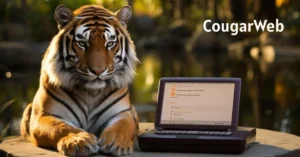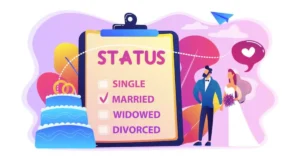The internet is a sprawling network of communities—some ordinary, others complex, and a few that dwell at the fringes of societal norms. Among these lesser-known digital spaces are incest forums. These online platforms are often shrouded in controversy, curiosity, and concern. While some users arrive with academic or psychological interests, others are drawn by voyeurism or personal confusion. What defines these communities, how do they function, and what risks do they pose? Understanding incest forums requires nuance, context, and a close examination of behavior in the digital age.
This article aims to dissect what incest forums are, why people visit them, how they are moderated (if at all), and what implications they have for digital ethics, law, and mental health. With the rise of anonymous networks and decentralized web forums, these spaces have become more visible—and more opaque—than ever before.
READ MORE: What adswynk com Is—and Why It Matters, Right Up Front
What Is an Incest Forum?
An incest forum is an online discussion board where individuals engage in conversations related to incest—broadly defined as sexual or romantic interest between close relatives. These forums may exist on traditional bulletin boards, niche subreddits, encrypted chat servers, or even parts of the dark web.
However, not all incest forums serve the same purpose. They typically fall into the following categories:
- Confession-style forums: Users anonymously share personal stories—real or fabricated—related to incestuous thoughts or experiences.
- Fantasy or fiction hubs: Communities that share or critique incest-related fiction, often under the guise of creative writing or erotica.
- Support or survivor groups: Forums where people affected by familial sexual abuse seek help or solidarity.
- Academic or legal debate spaces: Rare, but exist to analyze the legal, cultural, and psychological aspects of incest.
Types of Users and Their Motivations
| User Type | Motivation |
|---|---|
| Curious Observers | Explore out of curiosity, taboo interest |
| Writers/Artists | Share fictional narratives or art |
| Victims/Survivors | Seek community, validation, or healing |
| Anonymized Fetishists | Discuss fantasies in a judgment-free environment |
| Trolls and Provocateurs | Post to incite outrage or test boundaries |
While the content may range from harmless fiction to deeply problematic behavior, the legal and ethical implications vary widely across jurisdictions.
Legal Considerations
Laws around incest—both in terms of real-life behavior and fictional depiction—differ from one country to another. Most jurisdictions criminalize real-world incestuous acts, especially those involving minors or non-consensual scenarios.
But what about talking about incest online?
- Freedom of Speech vs. Harmful Content: In many democracies, simply discussing incest fantasies (without sharing child sexual abuse material or planning crimes) may fall under protected speech.
- Child Protection Laws: Any mention or depiction of minors in incestuous contexts—fictional or real—can quickly cross into criminal territory.
- Platform Policies: Even if some content is legal, major platforms like Reddit, Facebook, or Discord often ban incest forums for violating community standards.
Digital Psychology: Why Do These Communities Exist?
To understand the persistence of incest forums, one must look at digital behavior and human psychology:
- Anonymity Lowers Inhibition: Users are more likely to express taboo thoughts anonymously.
- Taboo Draws Attention: The forbidden nature of incest discussions increases their allure to certain personalities.
- Escapism and Role-Play: Some users engage not out of desire but as a form of storytelling or taboo-breaking role-play.
- Isolation and Confession: Others may genuinely be struggling with thoughts they feel unable to discuss elsewhere—leading them to confessional forums.
Ethical Boundaries and Moderation
The ethics of hosting or participating in incest forums are murky. Even if no laws are broken, several red flags arise:
- Normalization of Harmful Behavior: Repeated exposure to incest-related content may desensitize users.
- Risk of Grooming: Some forums, especially unmoderated ones, can become grooming grounds for predators.
- Blurring of Fantasy and Reality: A user may begin with fiction but gradually cross into real-world risk-taking.
Moderation practices vary:
| Forum Type | Common Moderation Tactics |
|---|---|
| Open/Anonymous Boards | Often poorly moderated or chaotic |
| Private Invitation Forums | Strict gatekeeping, limited policing |
| Dark Web Forums | Encrypted, unmoderated, often illegal |
| Survivor Communities | Moderated for safety and support |
Cultural Analysis: Incest in Media and Online Influence
Media—from ancient myths to modern TV—has often flirted with incestuous themes. Think of Greek tragedies, Game of Thrones, or certain anime genres. The internet amplifies this trend by making fringe content accessible and shareable.
Pseudonymous forums encourage:
- Genre development: Stories that would never make it to print can thrive online.
- Subcultural bonding: Users find identity in pushing societal boundaries.
- Normalization through volume: The more a topic appears, the less taboo it seems to new users.
This doesn’t mean media causes interest in incest—but it can reinforce and reshape how such interest is expressed.
Risks and Dangers
It’s essential to recognize the psychological and social risks involved in participating in incest forums:
- Reinforcement of Unhealthy Desires: Echo chambers validate thoughts without challenge.
- Legal Jeopardy: Users may unknowingly cross lines around child protection laws or incitement.
- Mental Health Consequences: Long-term exposure to taboo forums may correlate with isolation, guilt, or maladaptive fantasies.
- Risk to Others: Some users may attempt to bring online conversations into the real world—posing risks to minors or vulnerable adults.
How Parents and Educators Should Respond
Young users may stumble upon incest forums out of curiosity or through peer-sharing. Rather than react with panic, it’s better to approach the situation through:
- Education: Teach digital literacy and ethical behavior online.
- Open Conversation: Create space for questions about taboo subjects without shaming.
- Content Filtering: Use age-appropriate web filters to reduce exposure to harmful forums.
Rehabilitation and Mental Health Resources
For users genuinely struggling with incestuous thoughts—especially when involving minors or real family members—professional help is essential. Accessing therapy, anonymous hotlines, or behavioral interventions can prevent harmful outcomes.
Organizations around the world are beginning to explore non-carceral approaches to unwanted sexual thoughts, especially in cases where no abuse has occurred but psychological distress is high.
Case Study: A Forum Turned Support Network
One small incest-themed community on a now-defunct bulletin board shifted over time. Originally launched for erotic fiction, the forum’s user base evolved. Survivors of childhood trauma began to dominate discussion. Over months, the moderators repurposed the platform into a trauma recovery hub—banning fiction, linking to professional resources, and using peer-led support.
It’s a rare example, but it shows that even dark spaces can be redirected toward healing.
READ MORE: Invisalign Alternatives in 2025: What You Need to Know Before Choosing Clear Aligners
Table: Summary of Key Dynamics in Incest Forums
| Element | Description |
|---|---|
| User Base | Mix of curious, fetish-oriented, victims, and trolls |
| Content Type | Confessions, erotica, fiction, trauma stories |
| Platform Risk | High legal risk, especially with unmoderated forums |
| Moderation | Rare or absent; some survivor-led communities exist |
| Social Impact | Can normalize harmful behavior if unchecked |
| Mental Health Role | Can provide catharsis but also deepen distress |
| Legal Boundaries | Vary by country; depiction of minors is illegal globally |
Conclusion: Navigating the Shadows of Online Discourse
Incest forums reside in one of the darkest corners of the internet. But ignoring them isn’t the answer. Understanding their function, users, and dangers equips society to respond with better tools—whether that means smarter digital policy, accessible mental health support, or ethical content moderation.
Online anonymity enables both harm and healing. As digital culture continues to push boundaries, the responsibility to monitor and mentor does not lie with algorithms alone—but with communities, policymakers, and individuals.
FAQs
1. Are incest forums legal to access?
It depends on the content. Fictional discussions between adults may not violate laws, but anything involving minors—real or fictional—can be illegal.
2. Why do people join these forums?
Some are curious, some are fantasy-driven, others are victims seeking community. Motivation varies widely.
3. Do these forums encourage real-world behavior?
While not always directly, unchecked environments can blur fantasy and real intentions, which may influence vulnerable users.
4. Is therapy available for people with incestuous thoughts?
Yes. Specialized therapists and anonymous support groups exist, especially for individuals experiencing distress without having acted.
5. Can incest forums ever serve a positive role?
In rare cases, yes—especially if repurposed into trauma recovery spaces. However, most remain ethically and legally problematic.









